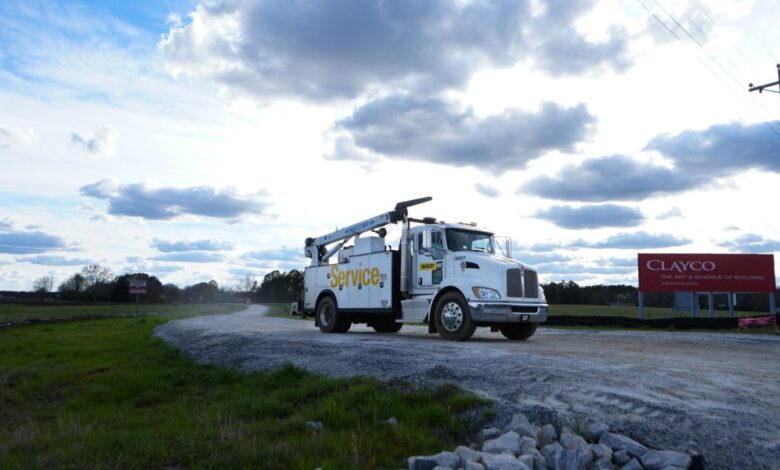Rivian Hits the Brakes on Georgia Plant Construction to Accelerate Production and Cut Costs

In a strategic shift, Rivian Automotive, the California-based electric truck maker, has announced a temporary pause in the construction of its $5 billion manufacturing plant in Georgia. The decision is aimed at expediting production and reducing costs. Originally planned to produce the new R2 midsize SUVs, the Georgia plant will now be put on hold, and the R2 production will commence at Rivian’s existing facility in Normal, Illinois.
Rivian’s CEO, RJ Scaringe, highlighted that this adjustment will facilitate bringing the R2 to market more quickly, with an anticipated launch in 2026. The move is expected to result in significant cost savings, approximately $2.25 billion in capital spending, providing a financial boost to the company. Rivian has been grappling with cash burn issues, and this strategic pivot aligns with its efforts to streamline operations.
The decision to pause construction in Georgia does not diminish the site’s importance, according to Scaringe. He emphasized its centrality to scaling production across various vehicles, including the R3 and R3X crossover models introduced unexpectedly during a recent event.
While Rivian did not provide a specific timeline for resuming construction in Georgia, the company remains committed to the site. The Georgia plant, near Social Circle, was expected to employ up to 7,500 workers and produce up to 200,000 vehicles in its first phase by the end of this year. The second phase aimed to increase capacity to an additional 200,000 vehicles per year by 2030.
The decision to pause construction follows Rivian’s recent unveiling of the new models and is part of a broader effort to optimize operations and navigate its internal changes. Rivian’s share price experienced a 13% jump after the announcement, closing at $12.51. However, it still lags significantly behind the stock’s peak valuation during its public offering in 2021.
The state and local governments in Georgia had offered an incentive package worth up to $1.5 billion, marking one of the largest incentives for an American auto plant. The decision to slow down construction aligns with Rivian’s adjustment of its capital investment pace, and it comes as the company faces legal challenges from local residents opposed to the development of the Georgia site.
While the temporary pause may impact Georgia’s aspiration to become a center for the electric vehicle industry, Rivian’s strategic recalibration aims to strengthen its overall position in the rapidly evolving electric vehicle market. The company’s move contrasts with Hyundai Motor Group’s rapid construction progress at its $7.6 billion electric vehicle and battery complex near Savannah, reinforcing the competitive dynamics within the industry.
Governor Brian Kemp’s office declined to comment, and the Georgia Department of Economic Development expressed continued communication with Rivian regarding its manufacturing plans in the state. The temporary pause introduces uncertainties about the fate of the Georgia plant and its potential impact on the state’s aspirations in the electric vehicle sector.






